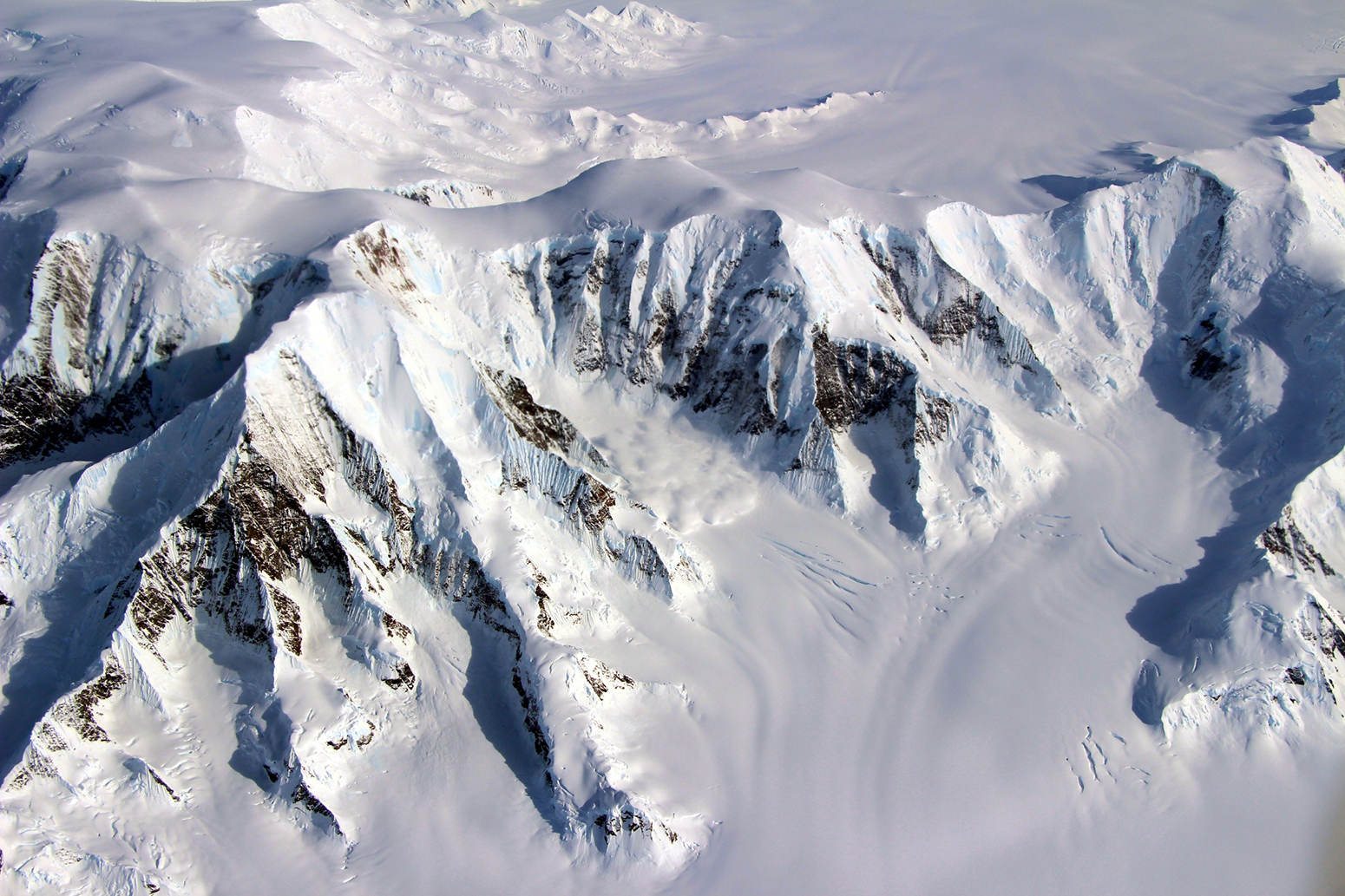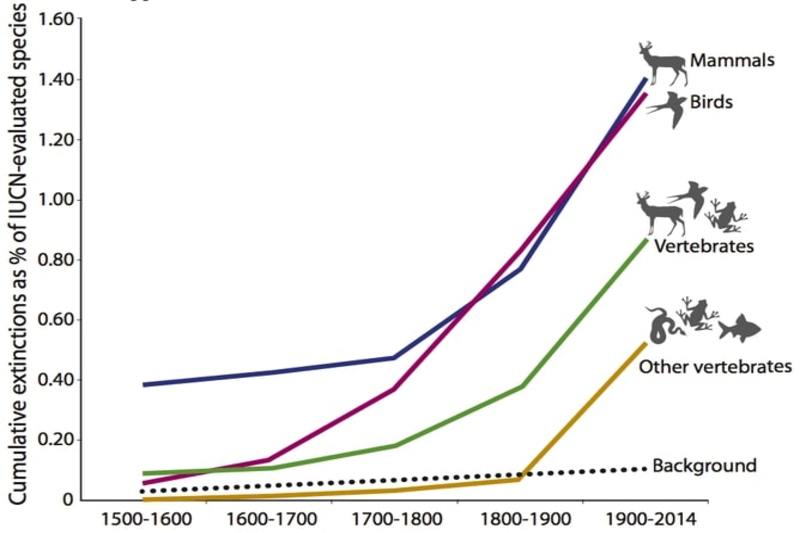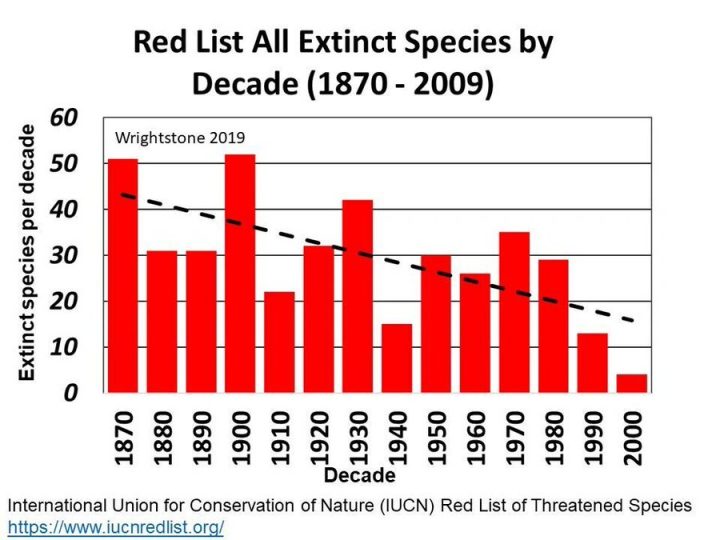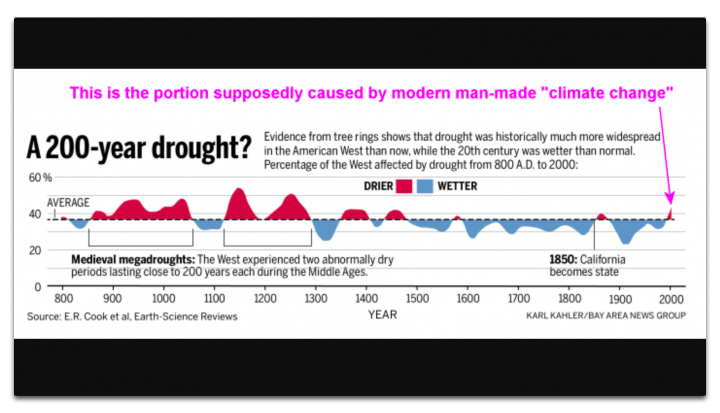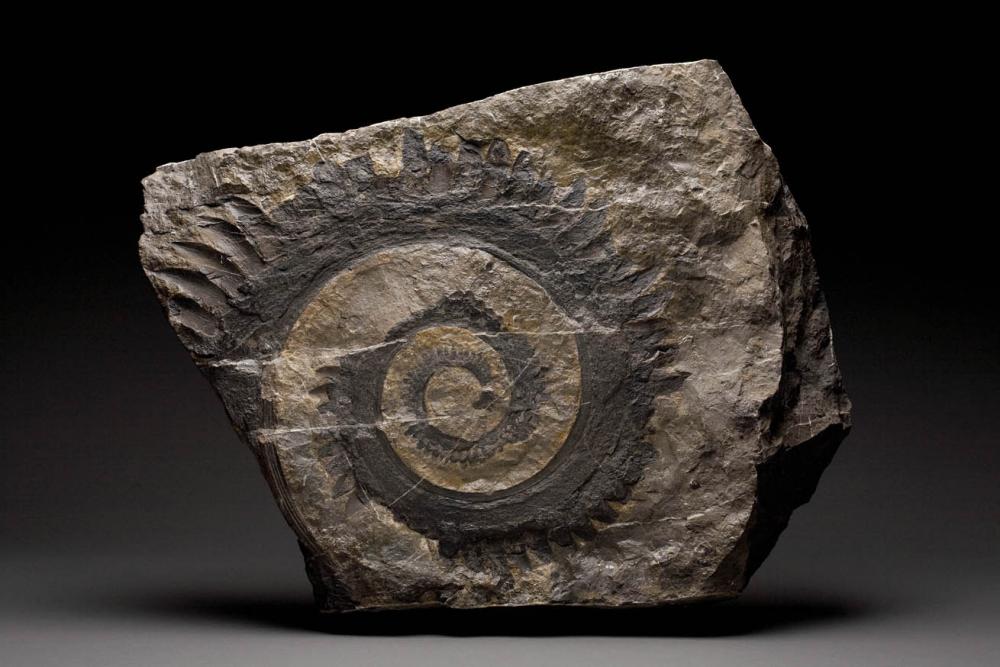Extinction Rates
Recent studies estimate about eight million species on Earth, of which at least 15,000 are threatened with extinction. It’s hard to pinpoint the exact extinction rate because many endangered species have not been identified or studied yet. A number of scientists grapple with improving methods for estimating extinction rates.
Regardless, scientists agree that
today’s extinction rate is hundreds, or even thousands, of times higher than the natural baseline rate. Judging from the fossil record, the baseline extinction rate is about one species per every one million species per year. Scientists are racing to catalogue the
biodiversity on Earth, working against the clock as extinctions continue to occur.
Learn about the 5 mass extinctions, and see a list of some extinct species. Explore how we can prevent extinctions, or possibly reverse them.

naturalhistory.si.edu
You are truly a desperate to lie constantly since I pointed out that your claim that climate emergency causes the extinctions is a LIE from
your own link, most of it are caused by other ways.
"The passenger pigeon is one of many hundreds of extinctions that have been caused by human activities in the past few centuries, such as:
Only one mentions climate change,
more from your link:
"Extinction Rates
Recent studies estimate about eight million species on Earth, of which at least 15,000 are threatened with extinction. It’s hard to pinpoint the exact extinction rate because many endangered species have not been identified or studied yet. A number of scientists grapple with improving methods for estimating extinction rates.
Regardless, scientists agree that today’s extinction rate is hundreds, or even thousands, of times higher than the natural baseline rate. Judging from the fossil record, the baseline extinction rate is about one species per every one million species per year. Scientists are racing to catalogue the
biodiversity on Earth, working against the clock as extinctions continue to occur.
Are We Part of a Sixth Mass Extinction?
At the end of the last ice age, 10,000 years ago, many North American animals went extinct, including
mammoths,
mastodons, and
glyptodonts. While climate changes were a factor, paleontologists have evidence that
overhunting by humans was also to blame. Early humans worked cooperatively to trap and slaughter large animals in pits. About the same time,
humans began farming, settling down and making drastic changes in the habitats of other species.
Starting in the 1800s,
industrialization drove up extinction rates and has continued to do so. For example,
Chinese river dolphins,
foothill yellow-legged frogs, and
sockeye salmon are among the many species
currently endangered by water pollution, dams, and other industrial pressures on rivers. Smithsonian Anthropologist
Dr. Torben Rick leads an effort to understand how human activities affect biodiversity by studying interactions between humans and other species in the Channel Islands from ancient to modern times."
bolding mine
end it here with the last section of YOUR link:
"Preventing Extinction
The
science of conservation biology focuses on managing ecosystems to prevent species from going extinct. Because we can’t protect everything, conservation efforts target particular species or habitats. Smithsonian scientist
Dr. Brian Gratwicke is the “amphibian avenger” for his work to save populations of frogs from extinction. The Smithsonian is part of an alliance of institutions (
Global Tiger Initiative) working to save wild tigers from extinction.
The value of a species may be judged by various criteria, depending on who is making decisions about what to conserve. For example, cultural value is important in efforts to conserve populations of
Pacific salmon. A Smithsonian exhibit in the
Sant Ocean Hall shows how salmon for centuries have shaped a way of life for Native Americans living in the Pacific Northwest."
===
Not a fucking word about climate change in Preventing extinctions.
Climate Change has little to do with the extinctions which is dominantly made clear by your own link.


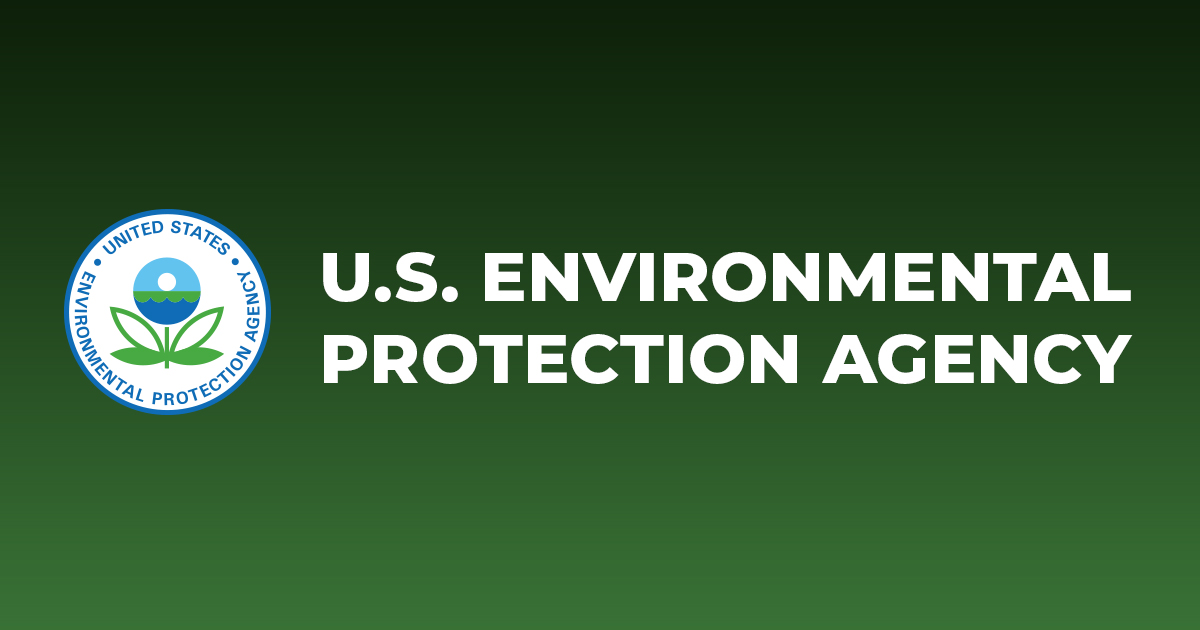
 www.epa.gov
www.epa.gov


 www.globalchange.gov
www.globalchange.gov


 www.publichealthpost.org
www.publichealthpost.org



